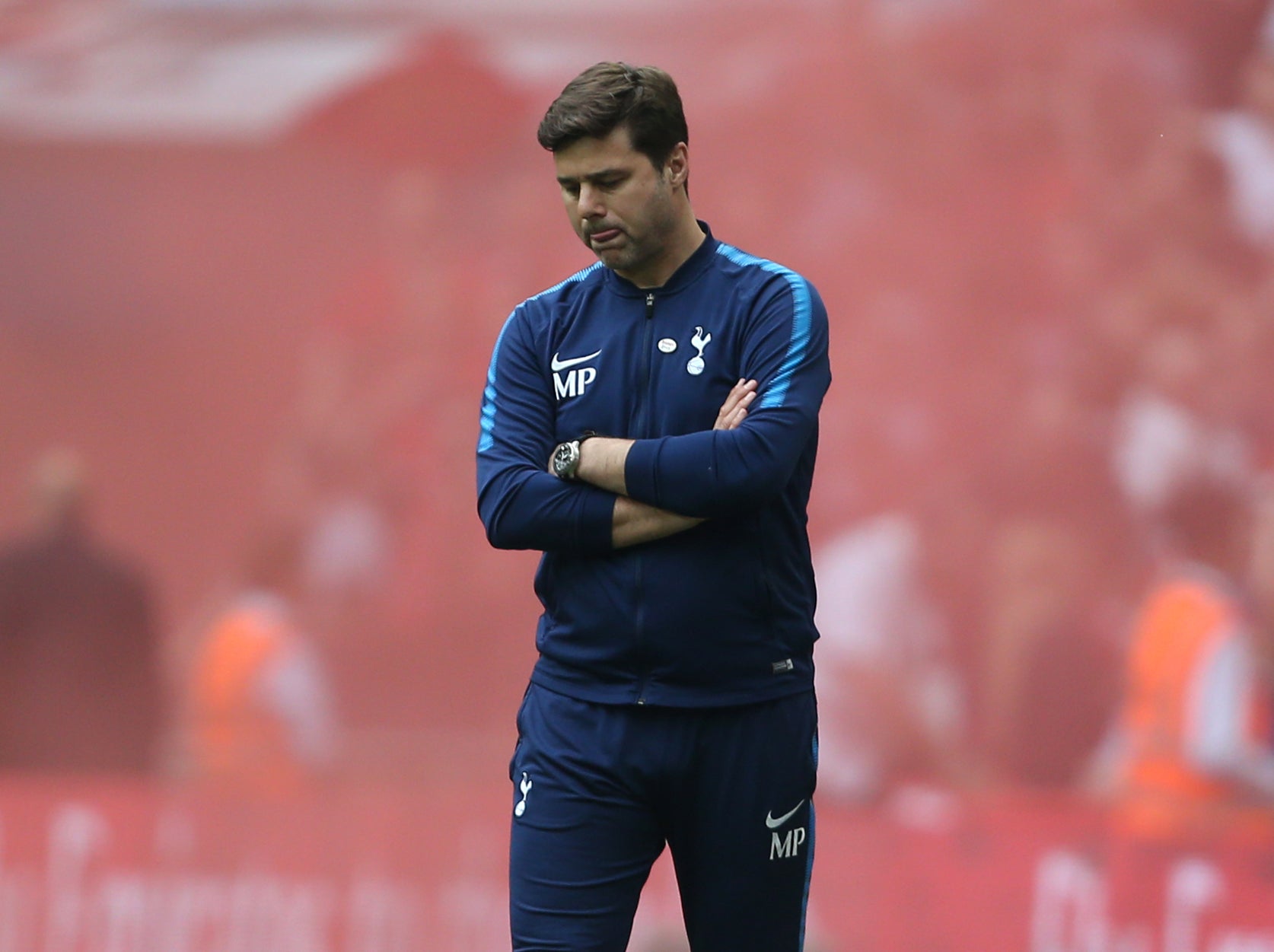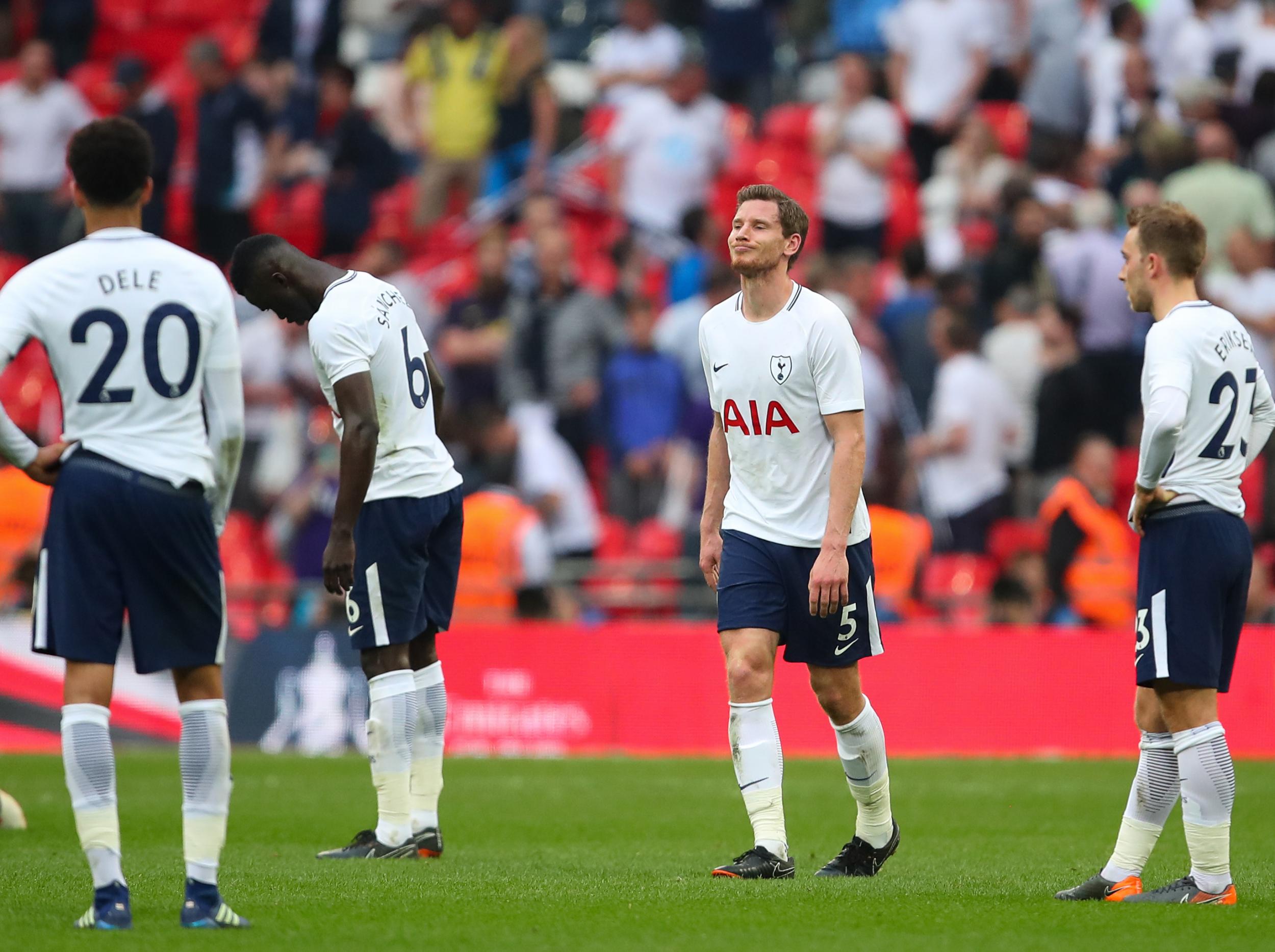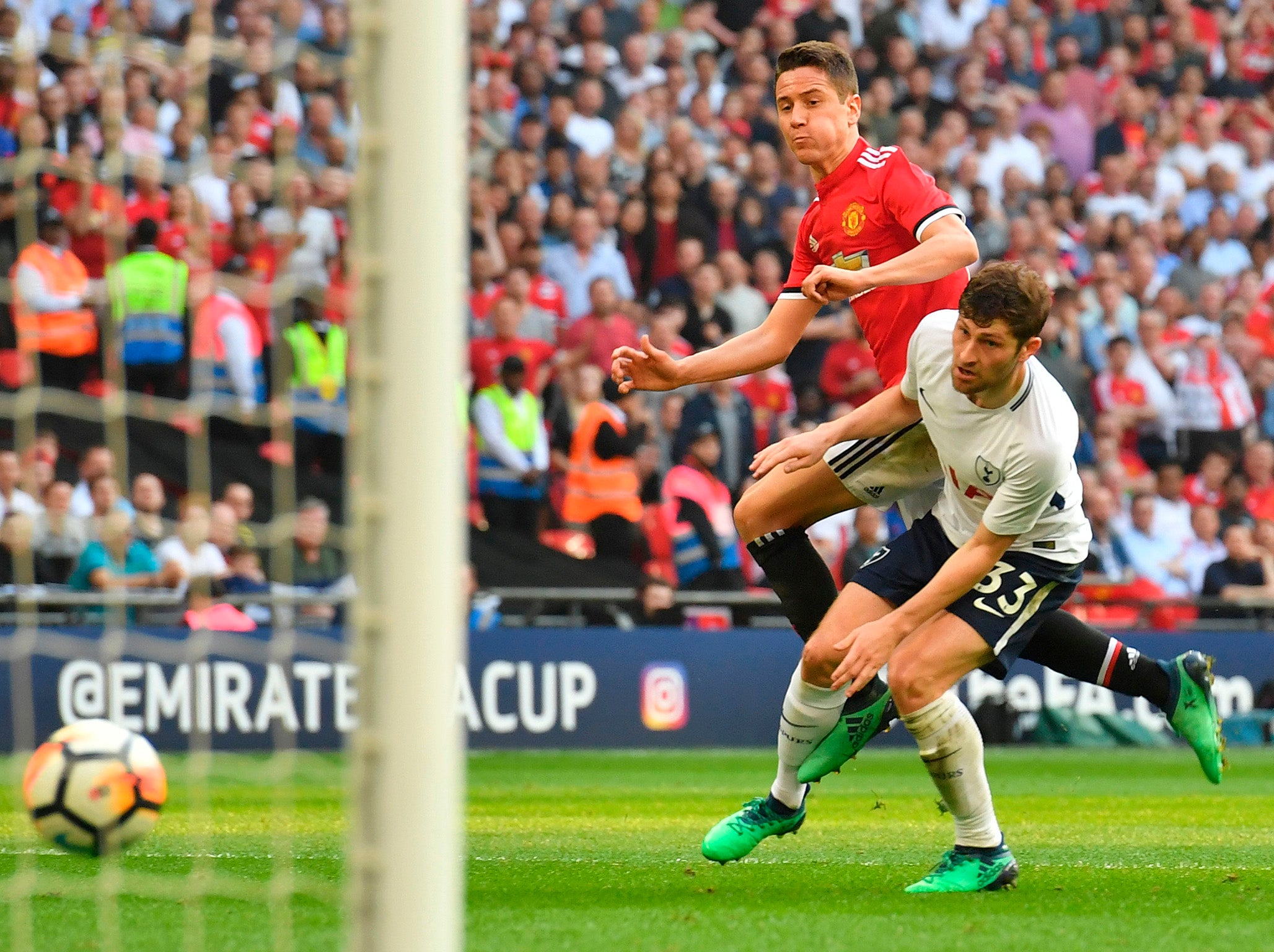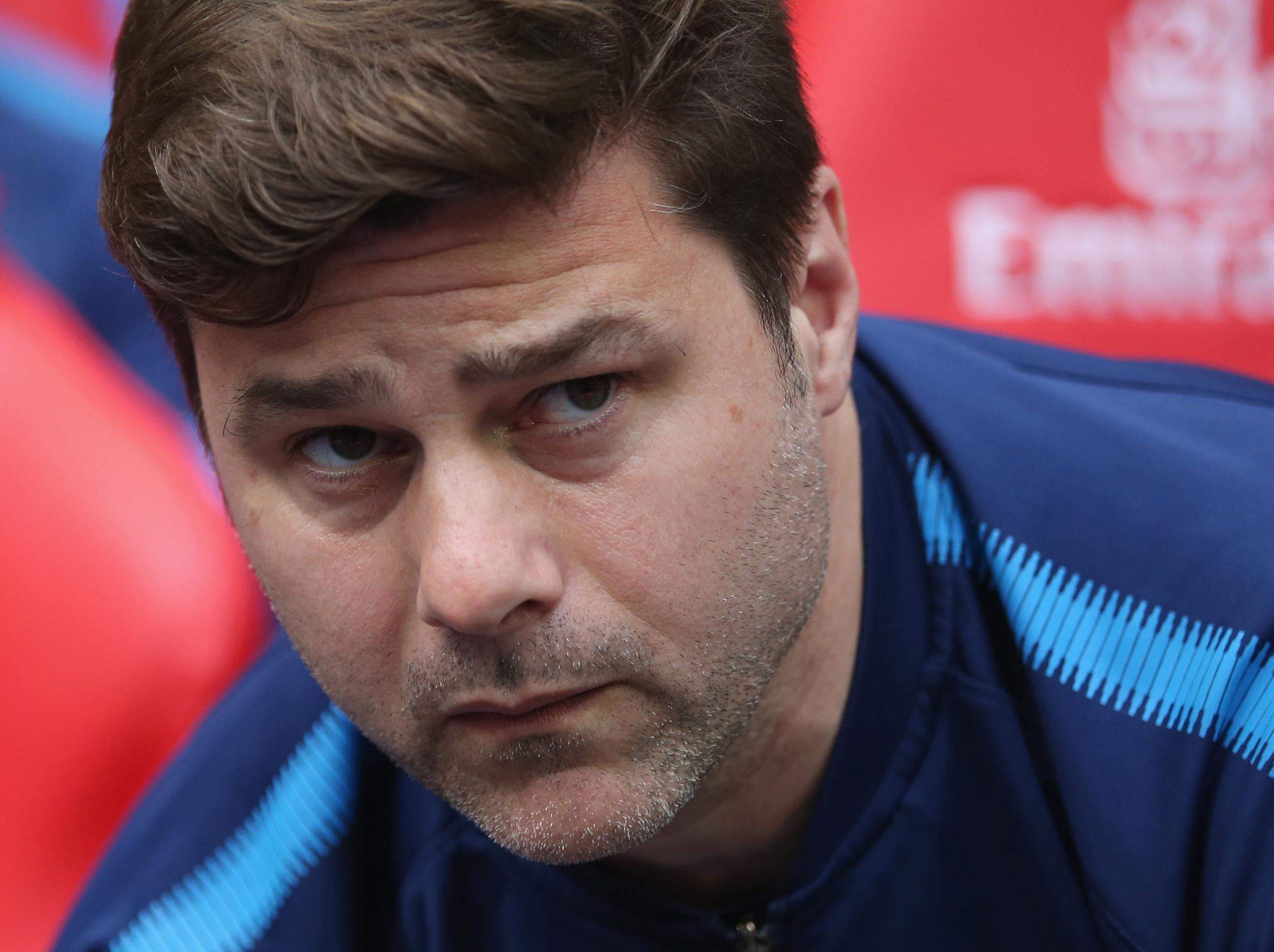Everyone knows Tottenham must improve to get to the next level - so how do they do it?
Mauricio Pochettino has done a remarkable job in competing with the richest clubs but as the trophy drought continues all of their little steps forward seem to add up to nothing

Your support helps us to tell the story
From reproductive rights to climate change to Big Tech, The Independent is on the ground when the story is developing. Whether it's investigating the financials of Elon Musk's pro-Trump PAC or producing our latest documentary, 'The A Word', which shines a light on the American women fighting for reproductive rights, we know how important it is to parse out the facts from the messaging.
At such a critical moment in US history, we need reporters on the ground. Your donation allows us to keep sending journalists to speak to both sides of the story.
The Independent is trusted by Americans across the entire political spectrum. And unlike many other quality news outlets, we choose not to lock Americans out of our reporting and analysis with paywalls. We believe quality journalism should be available to everyone, paid for by those who can afford it.
Your support makes all the difference.“To move on the team, to improve, to achieve another level, it is here that we need to improve,” said Mauricio Pochettino, pointing to his head. “It is not tactical, it is not philosophical, because we know very well how we need to play. It is here in our heads that we need to improve.”
That was August 2016, 20 months ago, as Pochettino reflected on the collapse of their first title push, and discussed how after two years of progress he could take his team to the next level. Almost two more seasons in, how different are the questions Pochettino is being asked?
In plenty of meaningful ways, Spurs have continued to improve. Last year was Spurs’ best league season since Bill Nicholson: 26 wins, 86 points and second place. This year they will not hit those numbers but they did reach the knock-out round of the Champions League, while making do without a home stadium. They have beaten Pep Guardiola’s Manchester City, Jose Mourinho’s Manchester United, Antonio Conte’s Chelsea and Jurgen Klopp’s Liverpool along the way.

And yet as Pochettino recognised at his press conference last Saturday, in English football “people love to talk about perception and changing perception”. Perceptions of status: who is a big club? Who is a winning club? And on those bigger questions, all of Spurs’ little steps seem to add up to nothing. At least until they have a trophy to show for their hard work.
So Pochettino goes into the summer of 2018 facing the same questions as he did in 2017 or 2016. How does he continue to defy gravity, staying up there with the richest clubs in the country despite not having the budget. And, even harder than that, how does he help his team to take that final step – being able to win games like Saturday’s FA Cup semi, like Juventus at home – that makes the biggest difference?
The glib solution is just to buy better players. But the whole point of Mauricio Pochettino’s overachievement is that they have competed with the elite on the pitch despite barely spending any money off it. Back on Thursday afternoon, 48 hours before the semi-final, Pochettino was reflecting on his work at Spurs and volunteered the figure of £400,000 as his net spend since taking over at Tottenham in 2014.

That is a remarkably low number and it is not just a function of Daniel Levy’s frugality, but of the fact that Spurs have been spending their money elsewhere for the last few years. “We are focused not only on trying to improve our football, our players and our squad,” Pochettino said, “we are also improving the stadium, the facilities and everything.” And Pochettino admitted that these restrictions were “a little bit the philosophy of the club” while they pay for their new stadium. Pochettino even joked that Levy was having sleepless nights because of this financial balancing act.
There will be money available for transfers this summer, but much of it will be financed by sales. Toby Alderweireld’s sale would generate at least £40million, and if Mousa Dembele decides to go China there will a serious fee too. Danny Rose has been a peripheral figure this year but that means Spurs cannot hope to get the figure in excess of £50m they nearly received from Chelesa last summer. Any sale would have to be for much less.

Coming in, Spurs want dynamism in midfield – they like Napoli’s Amadou Diawara - and cover at centre-back – Ajax’s Matthijs de Ligt. Watching how the team froze in the second half at Wembley on Saturday it is easy to see why. Davinson Sanchez has been very impressive since arriving from Ajax last summer but he is simply not as assured as Alderweireld in that position. Watching Spurs on Saturday it was very clear again that when Dembele and Harry Kane are half-fit, the team is half as good.
But then signing players good enough to improve the first team has been the greatest challenge of the past few years. Even at the top end of the price scale – Moussa Sissoko and Lucas Moura – the impact has been mixed at best. Pochettino has always wanted a winger but not found one he truly trusts. Fernando Llorente has turned out to be an even blunter Plan B than Vincent Janssen. And on Saturday at Wembley it was Paul Pogba and Alexis Sanchez, the most expensive and the best paid players in British history, who turned the game against them. “The most important thing,” Pochettino said, “is we competed against a team that spend a lot of money and have unbelievable players.”

Spurs have been competing admirably with these sides for a few years now and as expectations rise, the demand now is to win. Pochettino mischievously floated the possibility of his not being there in the future and certainly if he left these gains would be at risk. But for Pochettino and his players, that final step is proving more frustrating than ever.
Join our commenting forum
Join thought-provoking conversations, follow other Independent readers and see their replies
Comments